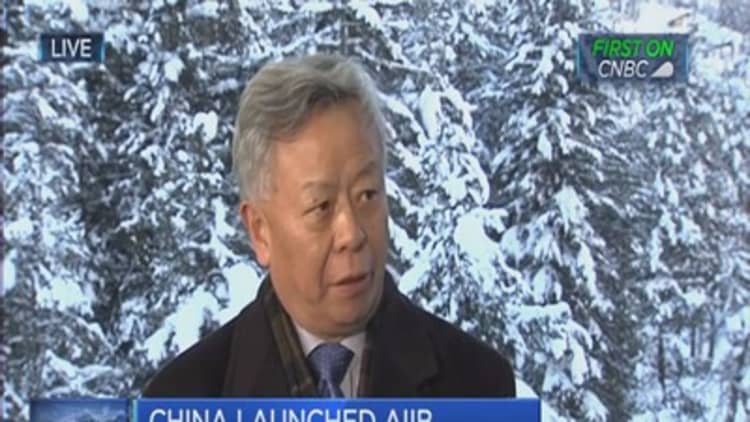Chinese policymakers suffer from a "communication issue," causing market panic as investors guess their next move, panellists at the World Economic Forum said on Wednesday.
Concerns about China's handling of its financial markets have continued since last summer, when authorities began intervening in equity markets and devalued the yuan amid a stock market rout. Policymakers' limited explanation of policy moves has aggravated fears.
"There is a communication issue, which is something that markets do not like," International Monetary Fund Managing Director Christine Lagarde said at a panel on China in Davos, Switzerland.
"Uncertainty, not knowing exactly what the policy is, not knowing exactly against what the renminbi is going to be valued. Is it the dollar, is it a basket of currencies, which basket is it going to be? On the balance of payment and the exchange rate matter, better and more communication would certainly serve the issue," she added.
Chinese stocks have posted further losses this year, as a result of weak manufacturing surveys, the further depreciation of the yuan and the introduction of circuit breakers in the stock market.
Gary Cohn, the president and COO of Goldman Sachs, said that markets were grappling with whether China was moving towards a free market economy or not.
"It is a communication issue. What's important here is communicating what the Chinese market is going to be and sticking with that theory, no matter how difficult that transition," he said at the panel in Davos.
Fang Xinghai, vice chairman of the China's securities regulator, told the panel that his country was learning to communicate "seamlessly" with markets.
In separate comments made to CNBC, Jin Liqun, president of the Asian Infrastructure Investment Bank said the market had overreacted to the volatility.
Chinese markets were choppy again on Thursday, with the main Shanghai composite and Shenzhen composite indexes extending losses after posting modest gains.
"The Chinese fundamentals are very good. Of course this economy's growth is slowing down for good reason because we need to aim for quality rather than quantity," Liqun said.
He added that it was important to note that the Chinese stock markets in still in its early stage of development. "The correlation between the virtual economy and the real economy is not that close as compared to the relationship between stock markets in the United States or western countries."
Some investors in China were "not mature", he said, and simply "want to make a quick buck", leading them to overreact sometimes.

The International Monetary Fund forecasts the Chinese economy would expand by 6.3 percent this year, a growth rate that Lagarde said Chinese authorities could "perfectly legitimately accept."
The Chinese economy has slowed steadily since 2010 and posted 6.9 percent growth in 2015.
— With contribution from Antonia Matthews.








